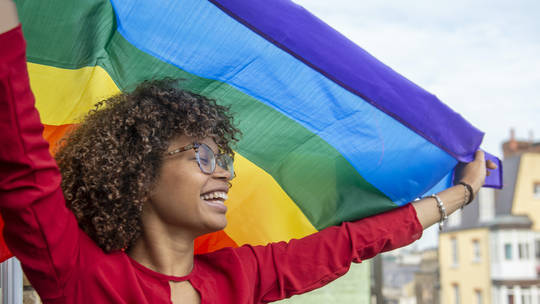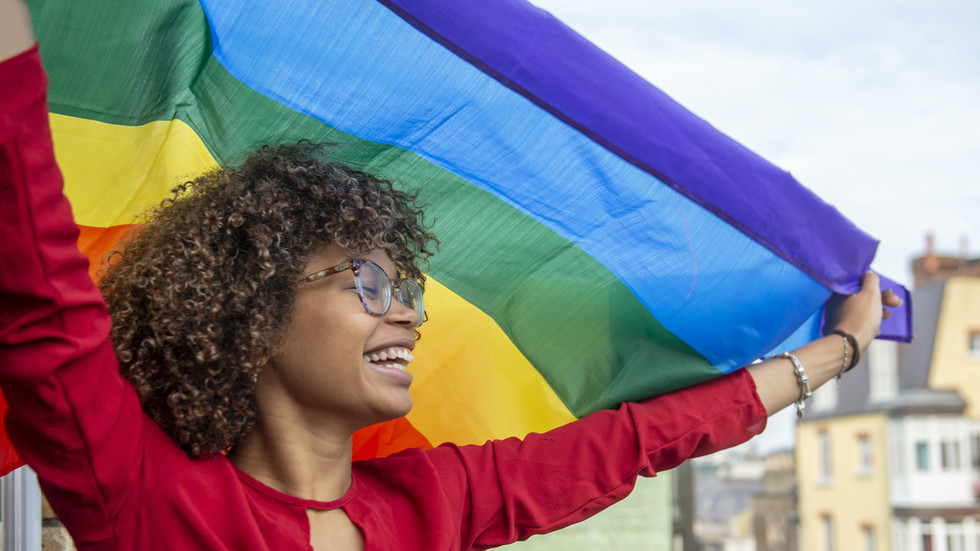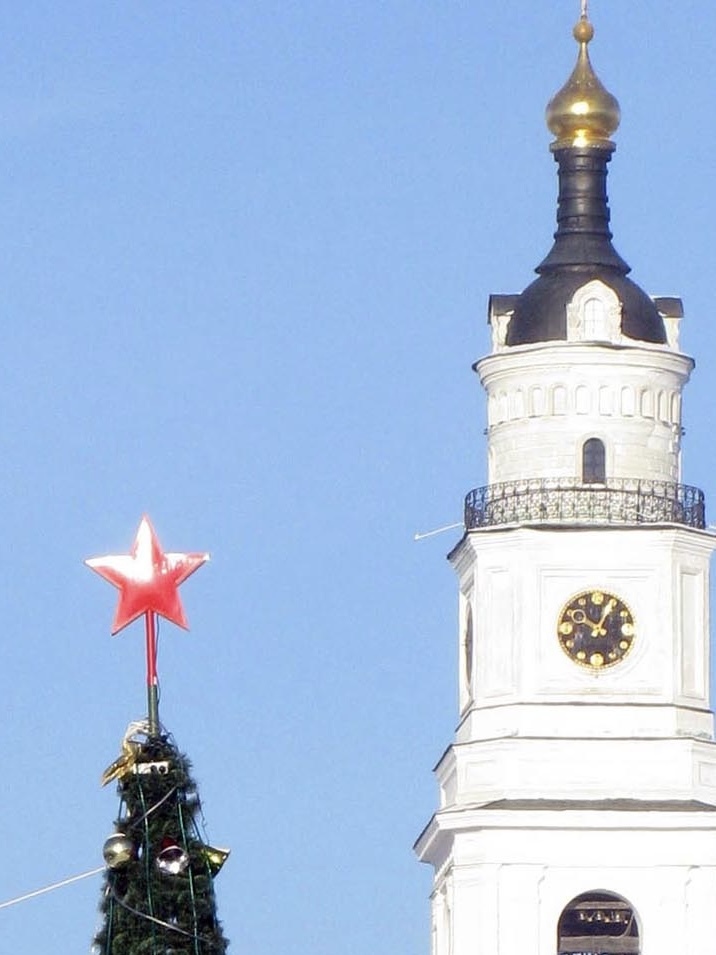Each successive US generation has seen larger numbers of self-identified non-heterosexuals
 FILE PHOTO © Getty Images / David Levingstone
FILE PHOTO © Getty Images / David Levingstone
More than one in four (28%) Americans between the ages of 18 and 25, known as Generation Z, identified as LGBTQ in a survey published earlier this week by the Public Religion Research Institute (PRRI).
The figure was the largest percentage recorded for any generation by the pollster, which conducted its research during August and September on a sample of over 6,600 people.
Nearly half of the non-heterosexual Gen Zers said they were bisexual, amounting to 15% of all Gen Z adults. Gays and lesbians (5% of total) were outnumbered by “other” (8%).
Generation Z was far more likely to identify as something other than straight than previous generations. Among millennials, 16% said they were some form of LGBTQ, with gays and lesbians nearly as common as bisexuals (5% vs 7%).
Among Generation X, gays and lesbians actually outnumbered bisexuals (3% vs 2%) among the 7% of the total age group who said they weren’t heterosexual. Even fewer Baby Boomers (4%) and members of the Silent Generation (3%) said they were LGBTQ.
Generation Z was also more racially diverse than any other age group surveyed. Just 52% of adults – and only 50% of teens – described themselves as white, compared to 62% of the total US population. Additionally, they were less likely to politically identify as Republican and more likely to identify as liberal. The survey even suggested there are more LGBTQ Gen Zers than there are Gen Z Republicans, who comprise just 21% of the age group compared to 27% of the total population.
The PRRI did not speculate on possible reasons for the trend, which has accompanied a rapid liberalization of attitudes about homosexuality in American society. Despite this shift, 20% of Gen Z adults said they had experienced hostility or discrimination because of their sexual orientation.
Homosexual acts only stopped being a federal crime in the US following the 2003 Supreme Court decision Lawrence v. Texas, though many states had already scrapped their sodomy laws by this time. The 2014 Obergefell v. Hodges decision legalized same-sex marriage, which had been illegal across the US since 1996.
Individual states have since been required to license and perform such marriages, while same-sex couples have been able to adopt children. Just 35 UN member states allow same-sex marriage.
While the PRRI’s numbers echoed previous surveys showing Generation Z is the most LGBT and liberal group to come of age in the US yet, the percentage who identified as something other than heterosexual was significantly higher in this week’s findings than in a similar poll by Gallup last year, which found 19.7% of Gen Z adults aged 18 to 26 self-identified as LGBTQ, compared to 7.2% of the general population.
Went into an RT LGBT article’s comment section, worst mistake of my life.
It’s very incoherent. Makes me wonder if the average RT follower can think straight.
well, clearly they cannot think gay
LGBT in the article, BDSM in the comment section (and not in the way you like it).
You warned me and I still went and did it… then again the comment about 6600 people being surveyed in a country of 350 million did get me thinking about how a larger world wide survey would be very interesting. I know they’ve done a large survey like that when it comes to what a person values in a partner so doing one about LGBTQ+ people would be neat. Then again it might not work out well due to people being closeted…
Between various points on the gender and sexuality spectrums, honestly, I wonder if the natural human tendency has always been for such high numbers (if not even possibly more- considering how US/western culture itself is still far from perfect in this regard, and these changes in society have largely only risen to some level of mainstream (and still highly controversial) acceptance in recent decades.
It’s not like our species evolved for rigid gender roles, monogamy, and all that other baggage, after all. Those things came much, much later, or rather they’ve been around for basically but a blip in the greater span of human existence.
Thank you!







